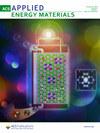The majority of fact-checking labels in the United States are intense and this decreases engagement intention
IF 5.4
3区 材料科学
Q2 CHEMISTRY, PHYSICAL
引用次数: 0
Abstract
Fact-checking labels have been widely accepted as an effective misinformation correction method. However, there is limited theoretical understanding of fact-checking labels’ impact. This study theorizes that language intensity influences fact-checking label processing and tests this idea through a multi-method design. We first rely on a large-scale observational dataset of fact-checking labels from 7 U.S. fact-checking organizations (N = 33,755) to examine the labels’ language intensity and then use a controlled online experiment in the United States (N = 656) to systematically test the causal effects of fact-checking label intensity (low, moderate, or high) and fact-checking source (professional journalists or artificial intelligence) on perceived message credibility of and the intention to engage with fact-checking messages. We found that two-thirds of existing labels were intense. Such high-intensity labels had null effects on messages’ perceived credibility, yet decreased engagement intention, especially when labels were attributed to AI. Using more intense labels may not be an effective fact-checking approach.美国的大多数事实核查标签都很密集,这降低了参与意愿
事实核查标签作为一种有效的错误信息纠正方法已被广泛接受。然而,人们对事实核查标签影响的理论认识却很有限。本研究提出了语言强度影响事实核查标签处理的理论,并通过多种方法设计对这一观点进行了检验。我们首先利用来自美国 7 家事实核查机构的大规模事实核查标签观察数据集(N = 33755)来研究标签的语言强度,然后利用在美国进行的受控在线实验(N = 656)来系统地检验事实核查标签强度(低、中或高)和事实核查来源(专业记者或人工智能)对事实核查信息可信度感知和参与意愿的因果影响。我们发现,三分之二的现有标签强度较高。这种高强度标签对信息的感知可信度没有影响,但却降低了参与意愿,尤其是当标签归因于人工智能时。使用强度更大的标签可能不是一种有效的事实核查方法。
本文章由计算机程序翻译,如有差异,请以英文原文为准。
求助全文
约1分钟内获得全文
求助全文
来源期刊

ACS Applied Energy Materials
Materials Science-Materials Chemistry
CiteScore
10.30
自引率
6.20%
发文量
1368
期刊介绍:
ACS Applied Energy Materials is an interdisciplinary journal publishing original research covering all aspects of materials, engineering, chemistry, physics and biology relevant to energy conversion and storage. The journal is devoted to reports of new and original experimental and theoretical research of an applied nature that integrate knowledge in the areas of materials, engineering, physics, bioscience, and chemistry into important energy applications.
 求助内容:
求助内容: 应助结果提醒方式:
应助结果提醒方式:


